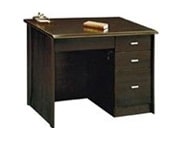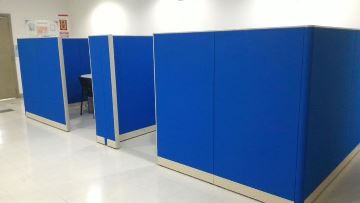If you work in an open office, you’re likely all too familiar with its drawbacks. From constant distractions to the never-ending sound of people typing, poor concentration, lack of privacy and many more.
These things affect a lot of your productivity.
Noise levels affect productivity and peace of mind in profound ways. Unwanted noise interrupts the workflow and hampers the productivity of a business. It can increase frustration, which lowers the quality of workmanship.
An excess of background noise can increase the levels of stress, mental fatigue and hinder creativity.
Most of the office workers now are what we call knowledge workers. And knowledge workers would want spaces free from distraction. Noise can have a negative impact on the amount of work done.
It is especially bad for millennials, who are used to an incredibly quiet workplace where they can focus completely on the task at hand and at their own pace.
Right now they are accustomed to working from home. And according to some surveys, they would rather face termination than going back to the office.
Why would that be? Probably one of the possible reasons, aside of course the tiresome commute, is the lack of privacy and distraction of the office environment.
Even the slowest employee is able to work at a faster pace when it’s quiet around. They can focus more on the tasks and be more productive.
A 2013 study by The University of Sydney found that “noise and loss of privacy are the main sources of workplace dissatisfaction in open plan offices.
Some proponents of “back to the office” paradigm offer the noise-canceling headphones. Though these gadgets are one way to combat this issue, they’re not always practical.
One solution to these open office problems is by reconfiguring the office itself. Rearranging personnel’s tables and chairs and even some furniture.
Full soundproofing of the office may require a sizable budget. Like installing thick floor carpets and heavy curtains.
With carpet cost ranging from $3 to $5 per square foot excluding labor, management would likely throw out your proposal.
Add to that, carpeting your office would involve the movement of your existing staff to a temporary place.
The most economical way then would be to install office partitions. Cubicles can reduce noise levels and create a sound-resistant barrier for best privacy.
By containing the sound within each individual unit, cubicles act as a sound-resistant barrier, creating a more peaceful and productive work environment.
They can also be beneficial for those who need privacy, as they offer more than traditional walls.
Now your office cubicles should have specific dimensions to efficiently reduce noise levels.
Dimension like the height of the panels. The standard height of the office cubicles here in the Philippines is 120cm, most of the offices.
To attain the reduced noise level, your panel height should be 150cm to 180cm. At least 150cm. Installing taller panels not only reduce noise but would also give you more privacy.
Another way of lessening noise coming in to your office cubicle is by using acoustic panels. Usually ordinary panels are made of plywood attached to a wooden frame and covered with fabric.
Acoustic panels are sponge-like blocks of materials. They are also attached to wood-frames. The principle of how they work is that these sponges, these soft materials, increase air resistance thereby bouncing off sound.
Most of the time these acoustic panels are made of polyether or polyester and are pretty good sound insulating materials.
Cubicles can be made of metal, wood or glass. The noise level will depend on the material used for the cubicle panels.
Some panels are even made of aluminum, some laminate. Metal and wood are not sound-proof and glass is semi-sound-proof.
Another attractive way to reduce noise in your cubicle is decorating your space with potted plants. I said it is an attractive way because it does beautify your office.
Plants absorb sound. You might want to choose plants that are intrinsically suited for indoors.
Some potted plants could wither in just a couple of days so its quite cumbersome to maintain these type of plants. There are also plants that have poisonous leaves in them. Might as well avoid these.
Some of the most common indoor plants are the Croton, Lemon Lime Dracaena, Golden Pothos, Anthurium, Lucky Bamboo, Snake Plant, and Peace Lily to name a few.
Among them, the Croton is the most popular. The Golden Pothos is also popular but it is quite dated.
The thing here is that the more plants, the more sound absorption happens. You may have noticed that in some offices the are plant boxes that act as dividers. These boxes can carry plenty of plants and would some sort of greenify the office, if you would.
You can also place some pots inside your personal cubicle. Some pots could be placed nearby your office chair. Really depends on your aesthetic taste.
Some office personnel would want plants that reflect their personality and others plants the symbolized luck.
Whatever the case maybe, your purpose for these plants is to reduce the noise circulating in your office.




